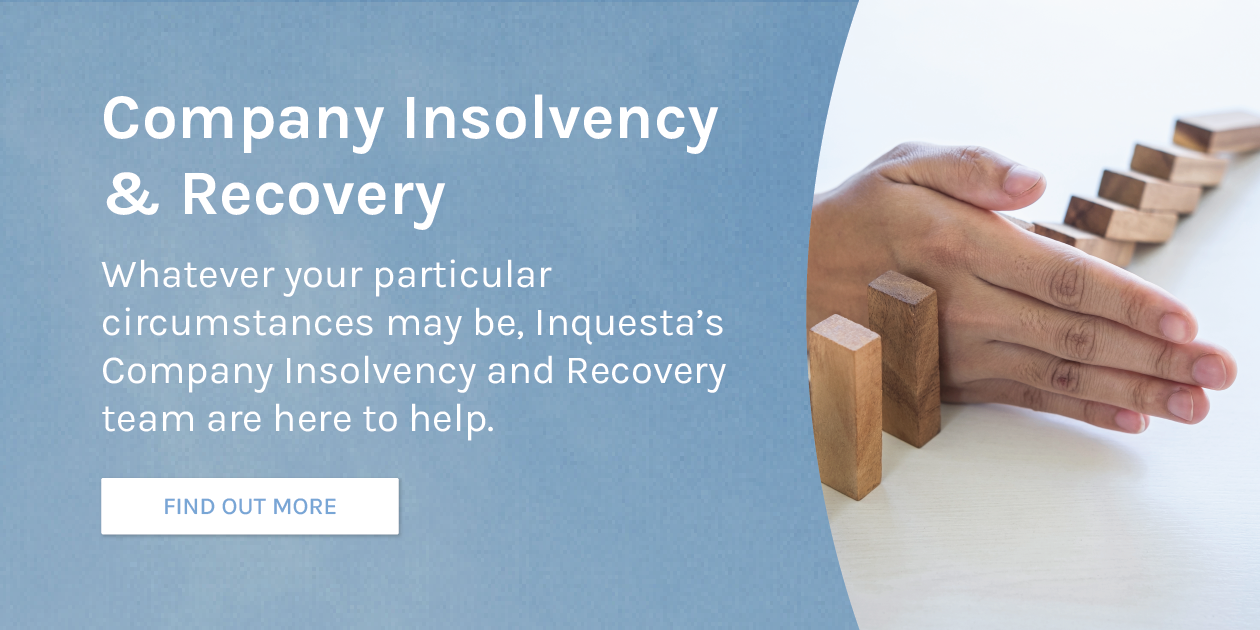Insolvency Practitioner for Beginners
Table of Contents10 Easy Facts About Insolvency Practitioner ExplainedInsolvency Practitioner Fundamentals ExplainedInsolvency Practitioner Fundamentals ExplainedThe Greatest Guide To Insolvency PractitionerNot known Facts About Insolvency Practitioner
Whether or not you require to use a bankruptcy practitioner (IP) to liquidate your firm depends upon various factors. While involving an insolvency expert for all types of liquidation is not a legal need, doing so can commonly improve the procedure and make sure compliance with lawful requirements. Liquidating a business is an important decision that includes significant effects.
It is a treatment utilized when a business does not have any kind of lenders, or every one of their lenders can be repaid completely with legal rate of interest. Recognizing the different kinds of insolvency processes can aid you identify the ideal program of activity for your firm's liquidation or other official bankruptcy treatments itself.
This is compulsory in order to stick to legal demands - Insolvency Practitioner. This is due to the fact that IPs have the required credentials and experience to ensure that the liquidation process is performed based on all appropriate regulations and regulations. By engaging a qualified bankruptcy specialist, you can have satisfaction knowing that your company's liquidation process will certainly be taken care of professionally and in compliance with the appropriate legal demands
What Does Insolvency Practitioner Do?
The insolvency specialist is designated as a liquidator and is accountable for handling the company and liquidator's debts exceptional liabilities and assets. This procedure entails liquidating the business's possessions and distributing the proceeds to financial institutions. Upon conclusion of the procedure, the firm is removed from the register at Companies House.
Failing to do so can cause individual obligation for the company or supervisor for the lender's financial obligations. Volunteer liquidation, which consists of Creditors' Volunteer Liquidation (CVL) and Members' Volunteer Liquidation (MVL), is started by the company's supervisors and shareholders when they can no much longer pay their financial obligations. In a CVL, the bankruptcy professional is designated as the liquidator, in charge of handling company financial obligations and all business possessions.

See This Report about Insolvency Practitioner
By examining the know-how and experience of possible insolvency specialists, you can make certain that you select a specialist who has the essential qualifications to click for more manage your company's liquidation process successfully. While bankruptcy practitioner-led liquidation is often the most suitable program of action for business dealing with insolvency, there are alternative strategies to consider, such as striking off and partial liquidation.
It's important to examine all offered options before choosing on the next finest service or program of action for your company. Striking off companies' registers is a more straightforward and cost-effective way to shut inactive or little business without any debts or assets. To strike off a company, its name is gotten rid of from the Business Residence register by sending form DS01.
Prior to opting for striking off, it's important to evaluate the advantages and downsides of this strategy and take into consideration whether it's the ideal option for your company. Partial liquidation is another alternative to bankruptcy practitioner-led liquidation, where a company sells off specific assets and liabilities while proceeding to run with the remaining assets and responsibilities.
An Insolvency Practitioner will certainly be able to advise you of the most effective program of action to take and make certain that whatever runs smoothly. It is not feasible to liquidate a firm without a liquidator. Selecting an authorised insolvency practitioner is essential for the process of volunteer liquidation to begin.
Our Insolvency Practitioner Statements
It is feasible to close and liquidate your business without making use of a liquidator, provided your business is solvent and you satisfy the qualification requirements to dissolve or liquidate it. If your business is bankrupt, you may be called for to make use of a liquidator and start formal insolvency procedures. Right here are a few other useful posts pertaining to firm liquidation in the UK:.
Being in a position where you're unable to pay your company's lenders is very difficult. In an effort to prevent raising the degree of financial debt, several firms attempt to bargain straight with their financial institutions and consent to a casual arrangement. If the debt is quite small and owed to one creditor, and the financial institution is being cooperative, becoming part of an casual financial obligation plan is most likely the very best solution, instead of looking the internet for 'a bankruptcy expert near me'.
On the various other hand, if there are several lenders and the level of debt is huge, lenders may not be so willing or participating. In order to stay clear of liquidation or insolvency, it from this source is much better to hire a bankruptcy professional to create formal propositions and discuss with creditors in your place.
Some Known Incorrect Statements About Insolvency Practitioner
Whilst it is a way to handle financial debt, there are significant threats involved with this kind of debt plan - Insolvency Practitioner. If a creditor wants to enter into a casual arrangement (IA) where the borrower has next page consented to make normal, if lower, repayments to settle the financial obligation, it is essential to stick to the contract

As a result, the financial institution is within their legal rights to revoke the arrangement and petition the courts for your business to be sold off at any time. A formal setup that has actually been proposed by a bankruptcy professional in your place, and agreed by a financial institution, provides a much safer choice.